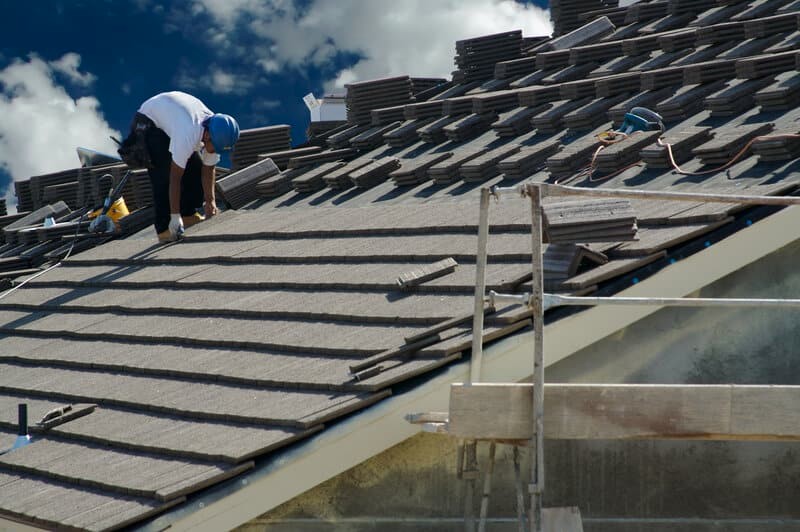Do Asphalt Shingles Have Fire-Resistant Properties?

Fire resistance is a crucial factor to consider when selecting roofing materials. It plays a vital role in protecting homes and buildings from potential fire hazards. In the event of a fire, a fire-resistant roof can significantly reduce the risk of flames spreading and help minimize damage to the property. Therefore, understanding the fire-resistant properties of different roofing materials is essential for homeowners and building owners alike.
When it comes to selecting roofing materials, considering fire resistance is of utmost importance. The ability of a roof to withstand fire plays a critical role in safeguarding homes and buildings from potential fire hazards. In the unfortunate event of a fire, a fire-resistant roof can make a significant difference by reducing the risk of flames spreading and limiting the extent of damage to the property.
Understanding Asphalt Shingles
Composition and Construction of Asphalt Shingles
Asphalt shingles are composed of multiple layers that work together to provide durability and protection for your roof. The base layer is typically made of fiberglass or organic materials, which are then coated with asphalt. On top of the asphalt layer, ceramic granules or mineral granules are embedded to enhance the shingles’ resistance to UV rays and provide aesthetic appeal. The granules also help protect the shingles from fire and impact damage. The composition and construction of asphalt shingles ensure a lightweight yet sturdy roofing option that can withstand various weather conditions.
Factors Influencing Fire Resistance in Asphalt Shingles
Many manufacturers produce asphalt shingles with fire-resistant additives, such as fire-retardant chemicals or mineral fillers, which help reduce the spread of fire. The presence of these additives enhances the overall fire resistance of the shingles. Additionally, the installation method plays a role in fire resistance. Proper installation techniques, including using fire-resistant underlayment and ensuring proper ventilation, can contribute to the overall fire resistance of the roofing system. It’s important to note that while asphalt shingles offer a certain level of fire resistance, they are not entirely fireproof.
Evaluating the Fire-Resistant Properties of Asphalt Shingles
Fire Ratings and Classifications of Asphalt Shingles
Asphalt shingles are commonly used in roofing materials, and their fire-resistant properties are an important consideration for homeowners. These shingles are typically assigned fire ratings and classifications based on their performance in fire tests. Fire ratings are assigned based on the shingles’ ability to withstand the spread of flames, while classifications categorize them based on their resistance to fire penetration and external exposure. These ratings and classifications help homeowners and building professionals choose shingles that meet specific fire safety requirements.
Impact of Shingle Design and Manufacturing on Fire Resistance
The design and manufacturing process of asphalt shingles can significantly impact their fire resistance. Shingles with enhanced fire-resistant properties often incorporate features like fiberglass reinforcement, which improves their overall strength and resistance to flames. Additionally, some manufacturers may apply fire-retardant coatings or additives to the shingle materials to enhance their fire resistance. The quality of the manufacturing process, including the selection of raw materials and adherence to industry standards, can also influence the shingles’ fire-resistant properties.
Asphalt Shingles vs. Other Roofing Materials
Asphalt shingles have gained popularity due to their affordability, durability, and ease of installation. However, their fire resistance is a critical factor that homeowners and builders should not overlook. Compared to traditional roofing materials like wood shingles or shakes, asphalt shingles have inherent fire-resistant properties that make them a safer choice. The composition of asphalt shingles act as a barrier against flames and help prevent the spread of fire. While no material is completely fireproof, asphalt shingles have been shown to perform well in fire tests and meet industry standards for fire resistance. In contrast, wood shingles are highly combustible and can contribute to the rapid spread of fires. Metal roofing, although offering excellent durability, is not entirely fireproof and can be prone to damage under extreme heat conditions.
Best Practices and Additional Fire Safety Measures
Best Practices for Fire-Resistant Asphalt Shingles
When it comes to fire safety, attention to detail is vital. It is important to follow manufacturer guidelines during installation, ensuring that the shingles are securely fastened and overlapping correctly. Regular inspection and maintenance are essential to identify any potential issues such as loose or damaged shingles that could compromise the fire resistance. Additionally, homeowners should maintain a clear roof and gutter system, removing any debris or flammable materials that may accumulate over time.
Supplementary Fire-Resistant Coatings and Treatments
For an added layer of protection, supplementary fire-resistant coatings and treatments can be applied to asphalt shingles. These coatings are designed to enhance the shingles’ resistance to fire by providing an additional barrier against heat and flames. Some coatings contain flame-retardant chemicals that can slow down the spread of fire, offering valuable time for evacuation and fire control. Consult with professionals or manufacturers to ensure the compatibility and effectiveness of these coatings with the specific type of asphalt shingles being used. By considering these additional measures, homeowners can enhance the fire-resistant properties of their asphalt shingles.
Best Practices for Fire Safety
Properly maintaining and safeguarding these vents, chimneys, and insulation is vital in preventing fires and ensuring the safety of your home. Firstly, it’s important to regularly inspect and clean your vents to remove any debris or buildup that could pose a fire hazard. Clearing out accumulated lint or other materials from dryer vents can significantly reduce the risk of fire. Similarly, chimneys should be inspected and cleaned annually to remove creosote and other flammable substances. This not only improves ventilation but also minimizes the chance of a chimney fire. Finally, opt for insulation materials that have fire-resistant properties and comply with safety regulations.
In conclusion, selecting fire-resistant roofing materials is crucial for protecting homes and buildings from potential fire hazards. Asphalt shingles offer a lightweight and durable option, with manufacturers incorporating fire-resistant additives to enhance their resistance. Proper installation techniques, regular maintenance, and supplementary coatings can further enhance their fire resistance. Compared to wood shingles or metal roofing, asphalt shingles provide inherent fire-resistant properties. By considering these factors and implementing best practices for fire safety, homeowners can ensure a safer roofing system for their properties.
Publisher’s Details:
Best Roofing
15500 Erwin St Suite #1001, Van Nuys, CA 91411
(866) 430-7318
info@bestroofingla.com
bestroofingla.com
Consider the benefits of asphalt shingle roofs, known for their durability, affordability, and aesthetic appeal. If you want to know more about asphalt shingle roofs, read: 5 Reasons To Choose An Asphalt Shingle Roof. When it comes to the leading provider of reroofing services in North Hollywood, CA, trust the industry leader at Best Roofing. With their exceptional services and commitment to excellence, they offer the best solutions for all your roofing needs.





